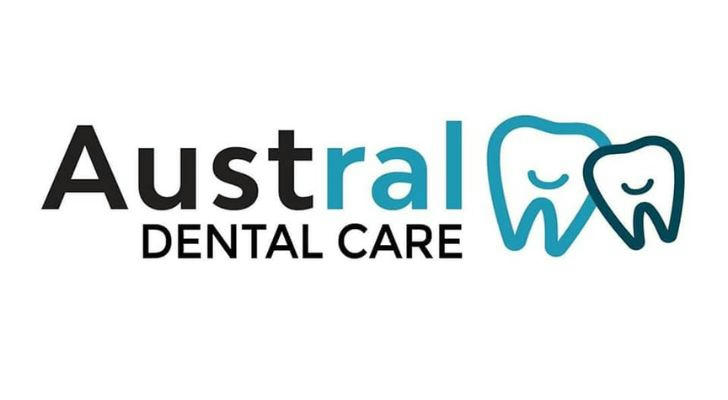Public Services or Private Care?Where Can You Find Better Dental Health
Dental care is an important aspect of overall health, and good oral hygiene not only prevents tooth decay and gum disease, but also promotes overall health. Poor dental health can lead to serious health problems, so understanding the importance of dental care and policies that support it are vital.

The Importance of Dental Care
Maintaining good dental hygiene is vital for several reasons:
Firstly, it helps prevent dental diseases such as cavities and periodontal disease. Regular brushing, flossing, and dental check-ups can significantly reduce the risk of these conditions.
Secondly, oral health is closely linked to overall health. Research has shown that poor dental health can lead to systemic diseases, including cardiovascular issues and respiratory infections.
Furthermore, dental problems can affect one's quality of life, leading to pain, discomfort, and even social anxiety.
In addition to physical health, dental care plays a significant role in mental health. A healthy smile can boost self-esteem and confidence, while dental issues can lead to embarrassment and social withdrawal. Therefore, prioritizing dental care is not just about maintaining a healthy mouth; it is about fostering a positive self-image and overall well-being.
Dental Care Policies in Queensland
In Queensland, Australia, the government has implemented various policies to promote dental health among its residents. The Queensland Health Department provides public dental services aimed at ensuring that all citizens have access to necessary dental care, regardless of their financial situation. This includes services for children, adults, and those with special needs.
Public dental services in Queensland are funded by the Government and are provided to eligible people.
To be eligible for public dental care for adults and their dependants, they must be a Queensland resident and, where applicable, be covered by one of the following concession cards:
Pensioner Concession Card issued by the Department of Veterans Affairs
Pensioner Concession Card issued by Centrelink
Health Care Card
Commonwealth Seniors Health Card
Queensland Seniors Card
To be eligible for public dental care for children, they must:
be a Queensland resident or attend a Queensland school
be eligible for Medicare
meet at least one of the following:
be 4 years of age or older and have not completed Year 10,or
be eligible for the Commonwealth Medicare Children's Dental Benefit Scheme,or
hold a valid Centrelink Concession Card, or be listed as a dependant on such a concession card
Public dental care for children may be provided on-site through fixed or mobile dental clinics in schools, or by a team of dentists, oral health therapists, dental therapists and dental assistants in larger community dental clinics.
Children's Dental Benefit Scheme (CDBS)
The CDBS is an Australian Government dental benefit scheme for eligible children that provides benefits of up to $1,052 over two years for basic dental services in public or private settings. This includes dental examinations, x-rays, cleanings, sealants, fillings, root canals and extractions. Benefits are not available for orthodontic or cosmetic dental treatment.
To be eligible for CDBS a child must:
Be aged 0-17 years on 1 January of the calendar year
Eligible for Medicare
Receive an eligible payment from Centrelink at least once a year, or
have a parent who receives a payment, including Family Tax Benefit Part A

Successful Case
Case Study 1: Emily's Journey to a Healthy Smile
Background: Emily is a 10-year-old girl living in a low-income neighborhood in Queensland. Her family struggled to afford regular dental check-ups, and as a result, Emily had not seen a dentist in over two years. She often complained of toothaches and was embarrassed about her crooked teeth, which affected her confidence at school. Her parents were unaware of the public dental services available to them until a school nurse informed them about the Child Dental Benefits Schedule (CDBS).
Dental Care Process: After learning about the CDBS, Emily's parents took her to a local public dental clinic. During her first visit, the dentist conducted a thorough examination and discovered multiple cavities and the need for orthodontic evaluation. The dental team provided Emily with a treatment plan that included:
Cavity Fillings: Emily received fillings for her cavities, which alleviated her toothache and restored her dental health.
Orthodontic Consultation: The dentist referred her to an orthodontist for an assessment of her crooked teeth. After evaluation, it was determined that Emily would benefit from braces.
Oral Hygiene Education: The dental team educated Emily and her parents on proper brushing and flossing techniques, emphasizing the importance of maintaining good oral hygiene to prevent future issues.
Outcome: After several months of treatment, including fillings and the application of braces, Emily's dental health significantly improved. She no longer experienced toothaches and felt more confident about her smile. The education she received about oral hygiene empowered her to take better care of her teeth. Emily's story is a testament to how accessible dental care can transform a child's life, boosting both their health and self-esteem.
Case Study 2: John’s Path to Recovery
Background: John is a 68-year-old retired factory worker who had lived in Queensland for most of his life. After losing his job, he faced financial difficulties and could not afford dental care. For over a decade, John neglected his oral health, leading to severe gum disease and multiple missing teeth. He often experienced pain and discomfort, which affected his ability to eat and socialize. Feeling isolated and embarrassed about his dental condition, John avoided seeking help until a community health worker informed him about the public dental services available for seniors.
Dental Care Process: Encouraged by the community health worker, John visited a public dental clinic. During his initial assessment, the dentist found that John had advanced periodontal disease and several teeth that required extraction. The treatment plan included:
Gum Disease Treatment: John underwent a deep cleaning procedure (scaling and root planing) to remove plaque and tartar buildup from his gums.
Tooth Extractions: The dentist extracted the teeth that were beyond saving and discussed options for dentures to restore his ability to chew and speak comfortably.
Denture Fitting: After healing from the extractions, John was fitted for a set of dentures, which greatly improved his quality of life.
Ongoing Care and Education: The dental team provided John with guidance on maintaining his oral health, including proper denture care and regular check-ups.
Outcome: After completing his treatment, John experienced a remarkable transformation. He was no longer in pain and could eat a wider variety of foods, which improved his nutrition. The dentures restored his ability to smile confidently, allowing him to engage more with family and friends. John expressed immense gratitude for the public dental services that provided him with the care he desperately needed. His story highlights the critical role that accessible dental care plays in enhancing the quality of life for seniors.

Conclusion
Proper dental care can significantly improve an individual's oral health, self-confidence, and overall quality of life. It's important for everyone to recognize how important regular dental care is to everyone, so prioritize your own dental health and encourage others to do the same. By taking a proactive approach to dental care, everyone can achieve a healthier smile and a better quality of life. Don't wait - schedule your dental exam today!
Find out more about public dental services in hospitals and health services in your area:(Public Dental Services)
